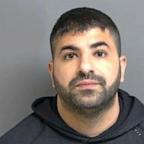In Gun Control Debate, Arguments for Tougher Background Checks, Better State Reporting
Gun control proponents see them as key part of controlling gun violence.
Dec. 24, 2012 — -- Editor's Note: This post is part of a larger series by ABC News examining the complex legal, political and social issues in the gun control debate. The series is part of ABC News' special coverage of the search for solutions in the wake of the tragedy at Sandy Hook Elementary School in Connecticut.
A popular adage heard in the gun control debate is that "guns don't kill people, people kill people."
Proposals for stricter gun control don't just include regulations on manufacturing and selling certain types of particularly lethal firearms, they also focus on controlling who can obtain those firearms.
Since 1993, when Congress passed the Brady Handgun Prevention Act, federal law has required licensed gun dealers to perform background checks on private citizens trying to buy firearms. The law lists nine groups of people who are immediately disqualified from purchasing guns, including individuals who have been convicted on domestic violence charges and those who have been ruled "mentally defective" or been institutionalized.
But the law is fraught with loopholes. According to figures provided by the Bureau of Alcohol, Tobacco and Firearms (ATF), in 2010 the National Instant Criminal Background Check System ran about 16.4 million background checks, and just 78,211-- less than 1 percent -- of the purchasers were denied.
Addressing these loopholes, many argue, is a crucial step in curbing our nation's gun violence.
The Brady Campaign to Prevent Gun Violence -- named after James Brady, the White House press secretary who was shot in an assassination attempt on his boss, President Reagan -- asserts that the Brady law has a "major gap." The law only requires licensed dealers to perform background checks, allowing for unlicensed dealers -- such as individuals selling at gun shows, on the Internet, etc. -- to sell guns without having to process paperwork and enforce a waiting period.
A 1999 report conducted by the Bureau of Alcohol, Tobacco and Firearms on gun shows found that a quarter of vendors at these events were not licensed sellers. A 1997 study conducted by the National Institute of Justice found that as many as 40 percent of gun purchases in the United States were not made through licensed dealers. There haven't been any similar studies conducted since then, however.
Organizations like the Brady Campaign and the Law Center to Prevent Gun Violence argue that universal background checks should be implemented.
"By requiring background checks on only 60 percent of gun sales, with the rest almost completely unregulated, we make it too easy for dangerous people to obtain dangerous weapons," the Brady Campaign argued in a 2009 report. "We are long overdue for instituting the rational policy of requiring a background check before any gun is sold."
However, the NRA's Institute for Legislative Action notes that under federal law, it is illegal to sell firearms without a license from the ATF. Violations of the law are punishable with up to five years in prison and a fine of $250,000, which raises the question, would universal background checks do anything more to limit unlicensed dealers?
Nevertheless, polling suggests that requiring sweeping background checks is a very popular proposal. A CNN poll released in July of this year showed that 96 percent of Americans supported requiring background checks on anyone buying a gun.
"I think that even among die-hard gun owners, there is strong support for universal background checks," said Adam Winkler, author of "Gun Fight: The Battle Over The Right to Bear Arms in America."
"Everyone agrees, even gun owners, that felons and the mentally ill should not be able to easily get their hands on guns," he said. "So laws that are designed to make it more difficult have the best chance of getting through Congress."




